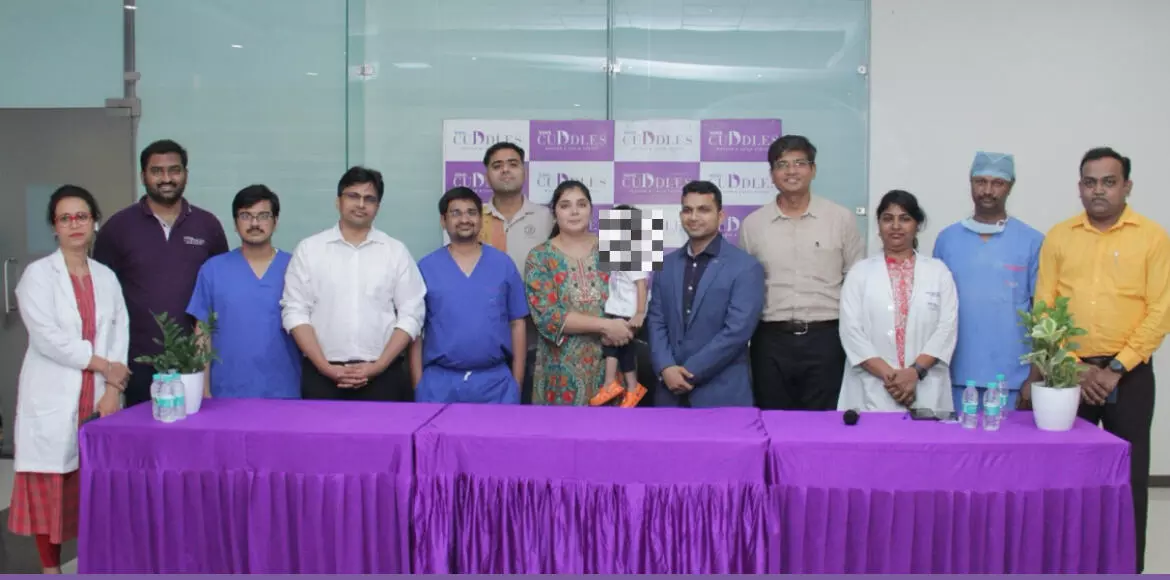Chhattisgarh infant ingests insecticide, airlifted to Hyderabad KIMS for treatment
In Bhilai, the infant accidentally ingested All-Out, leading to severe chemical pneumonitis and respiratory failure
By Anoushka Caroline Williams
Hyderabad: An 18-month-old girl from Bhilai in Chhattisgarh was airlifted to Hyderabad after she fell severely ill after ingesting All-Out insecticide. KIMS Cuddles in Kondapur managed to successfully save the infant after 18 days of intensive care.
In Bhilai, the infant accidentally ingested All-Out, leading to severe chemical pneumonitis and respiratory failure. Initially taken to a local hospital and then transferred to Raipur, her condition worsened despite being placed on a ventilator.
A team of specialists were sent from Hyderabad to save infant
At the Raipur hospital, her lungs failed to function properly even with full ventilator support and she developed severe right ventricular dysfunction and pulmonary hypertension. Recognising the critical state, the hospital contacted KIMS Cuddles in Kondapur in Hyderabad for advanced support.
A specialised team, including intensivists, a perfusionist, an ICU nurse and a cardiac surgeon were dispatched to Raipur. Upon assessment, they decided to implement ECMO (Extracorporeal Membrane Oxygenation) to stabilise her.
What is ECMO?
ECMO typically involves drawing de-oxygenated blood from the body, oxygenating it externally, and returning it.
Due to the child’s small size, the team opted for a rare procedure VA-ECMO (venoarterial ECMO), inserting a cannula through her neck to bypass her heart and lungs. This method, rarely used in children, was necessary to ensure adequate oxygenation and support.
The toddler was then transported via road ambulance to Raipur Airport, flown to Begumpet Airport in Hyderabad by charter air ambulance and finally taken to KIMS Cuddles in Kondapur.
Recovery after nine days
On VA-ECMO for nine days, the child gradually improved and was transitioned to ventilator support for an additional five to six days.
She then received high-flow and subsequently low-flow oxygen, alongside antibiotic treatment for an infection. After 18 days of intensive care, she fully recovered and was discharged with normal neurological outcomes.
The successful operation involved coordinated efforts by the medical team and air ambulance services. Dr Parag Dekate, who led the team, explained the complexity of the case: “The advanced facilities and expertise of our medical team enabled us to transport and treat her successfully on ECMO. This case required precise coordination and skill, given the rare use of neck cannulation in such a young patient.”